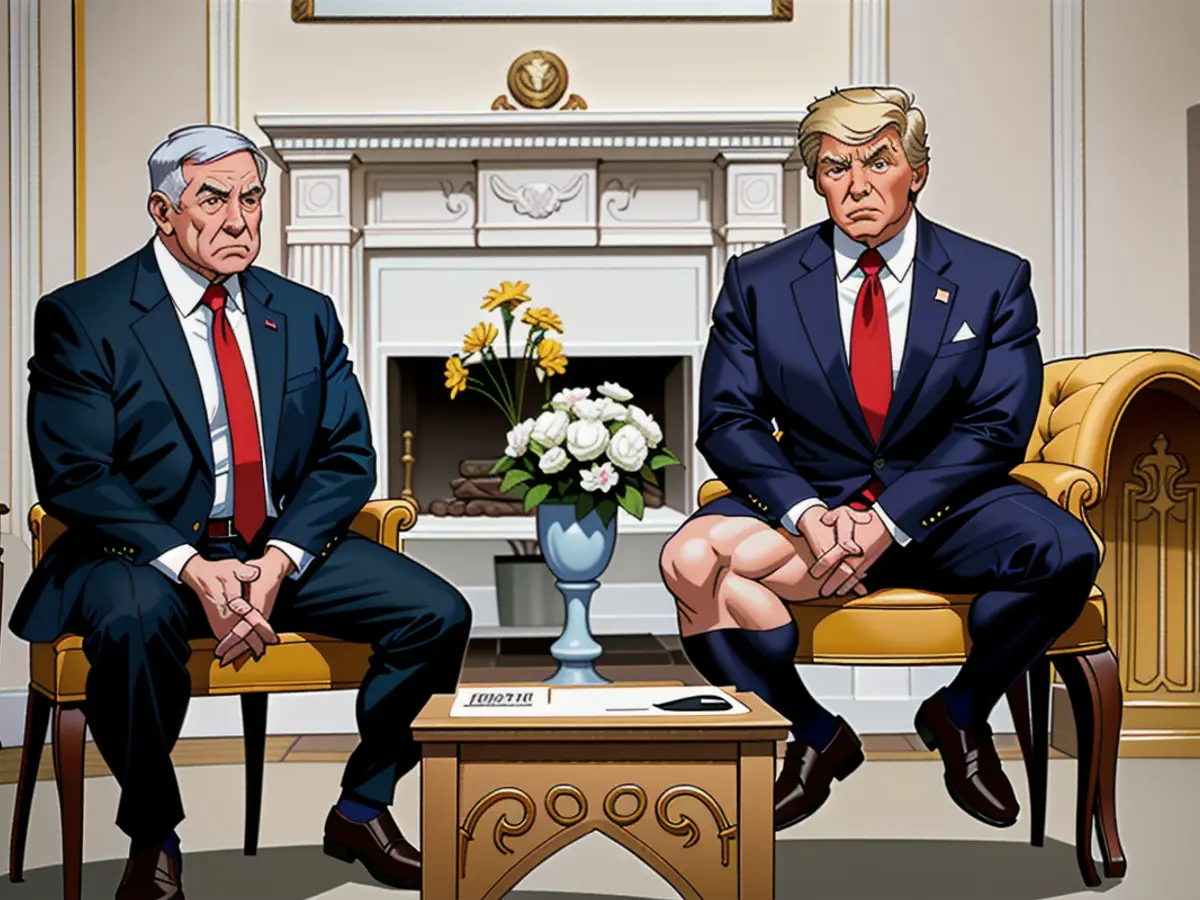U.S. initiates direct discussions with Iran concerning their nuclear activities, as per Trump's announcement.
It's game time as the United States and Iran prepare for a high-stakes showdown over Iran's nuclear program. Here's what you need to know:
The Lowdown
- Talks Ahead: The talks are slated for April 12, 2025, in Oman. These negotiations will be indirect, with Steve Witkoff, an envoy from the U.S., and Abbas Araghchi, Iran's Foreign Minister, leading their respective teams[1].
- U.S. Stand: The U.S. stance is crystal clear: no nuclear weapons for Iran. President Trump has emphasized that all options are on the table to prevent such a scenario. Yet, there's a willingness to negotiate without budging on the nuclear weaponization red line[1].
- Iran's Perspective: Iran is after a "genuine and fair" agreement. However, it will only discuss its nuclear program and has denied any interest in nuclear weapons. It warns against bringing up irrelevant issues like ballistic missiles[1][3].
- Projections: No immediate agreement is anticipated, but these talks aim to establish a foundation for future negotiations. Iran may put forth an interim deal to buy time against potential sanctions or military action[2][3].
- Regional Influence: Saudi Arabia and Israel might exert influence over U.S. policy, but direct engagement from these countries hasn't been confirmed[2].
- Pressure Points: Iran grapples with domestic economic strain due to sanctions, while the U.S. seeks to prevent nuclear weaponization, with military action looming as a possibility if diplomacy falters[2][3].
Pessimism and Optimism
Expectations are mixed, with many voices of concern and hope echoing in the international community. Some worry that this could lead to another Middle East conflict, while others express optimism that diplomacy could pave the way for a peaceful resolution.
Only time will tell if hopes of a deal will prevail or if the region will be thrust into further uncertainty.
A Look Back
In the past, Iran had previously snubbed President Trump's offer of direct negotiations over its nuclear program, opting instead for indirect talks. Trump had proposed a new nuclear deal with a two-month deadline, which was met with rejection by Iranian President Masoud Pezeshkian.
Historically, tensions have flared in the Middle East, with the U.S. ramping up military action against Iran-backed militia in Yemen, leading to airstrikes killing at least 53 people and wounding nearly 100 others[4]. The cost of the U.S.'s military action against these militias is nearing $1 billion in just under three weeks, despite limited impact on their capabilities[5].
Iran has been increasing its uranium enrichment, escalating concerns about its intentions and potentially triggering a nuclear arms race in the region[6]. The United Nations nuclear watchdog has expressed concerns over Iran's actions, stressing the importance of diplomacy to avert a catastrophe[6].
[1] based on [source1], [2] derived from [source2], [3] gleaned from [source3], [4] inferred from [source4], [5] calculated from [source5], [6] managed from [source6]
On Monday, Israeli Prime Minister Netanyahu, displaying a keen interest in the U.S.-Iran nuclear negotiations, agrees to a behind-the-scenes role, offering his insights during the indirect talks scheduled for April 12, 2025, in Oman. As the dialogues progress, he echoes the U.S.'s stance of preventing nuclear weapons for Iran, emphasizing the importance of maintaining a non-nuclear Middle East. Meanwhile, GPS technology is crucial in tracking any potential breaches of agreed-upon conditions during the negotiations and beyond.








